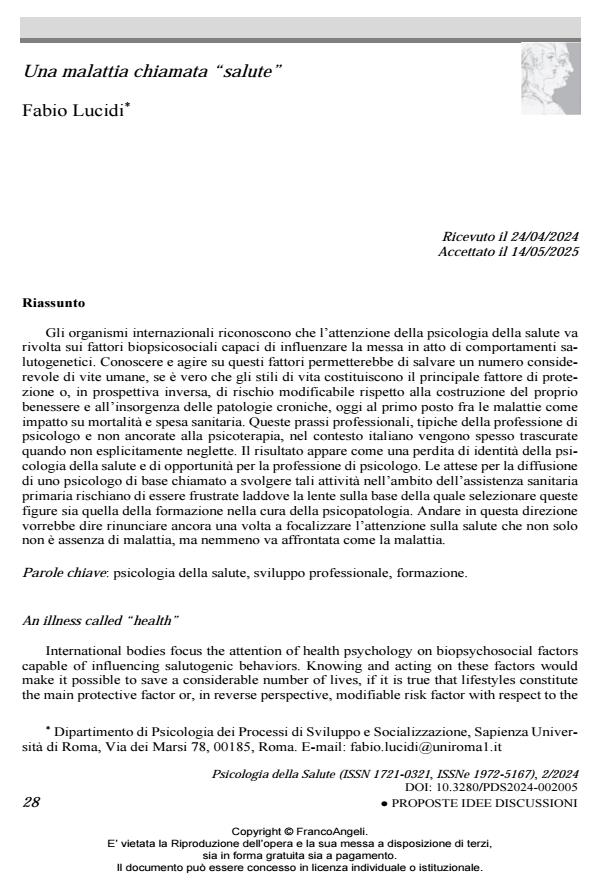An illness called “health”
Journal title PSICOLOGIA DELLA SALUTE
Author/s Fabio Lucidi
Publishing Year 2024 Issue 2024/2
Language Italian Pages 5 P. 28-32 File size 181 KB
DOI 10.3280/PDS2024-002005
DOI is like a bar code for intellectual property: to have more infomation
click here
Below, you can see the article first page
If you want to buy this article in PDF format, you can do it, following the instructions to buy download credits

FrancoAngeli is member of Publishers International Linking Association, Inc (PILA), a not-for-profit association which run the CrossRef service enabling links to and from online scholarly content.
International bodies focus the attention of health psychology on biopsychosocial factors capable of influencing salutogenic behaviors. Knowing and acting on these factors would make it possible to save a considerable number of lives, if it is true that lifestyles constitute the main protective factor or, in reverse perspective, modifiable risk factor with respect to the construction of one’s well-being and the onset of chronic diseases, currently the leading condi-tion as an impact on mortality and health expenditure. These professional practices, typical of the psychologist profession and not anchored in psychotherapy, in the Italian context are often overlooked when not explicitly neglected. The result appears to be a loss of health psycholo-gist’s professional identity and causing a loss of opportunities for the profession. Expectations for the diffusion of a primary care psychologist called to perform such activities in the primary health care setting risk being frustrated where the lens on the basis of which to select these figures is that of training in the treatment of psychopathology. Moving in this direction would mean once again giving up the opportunity to focus on health, which not only is not the ab-sence of disease, but also cannot be addressed as disease.
Keywords: health psychology, professional development, training.
Fabio Lucidi, Una malattia chiamata “salute” in "PSICOLOGIA DELLA SALUTE" 2/2024, pp 28-32, DOI: 10.3280/PDS2024-002005